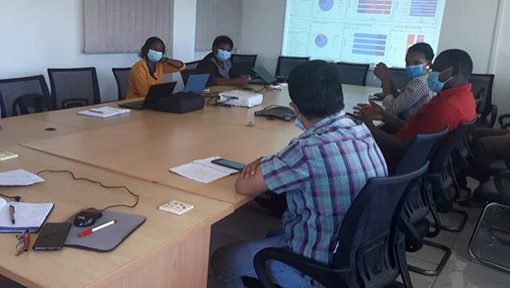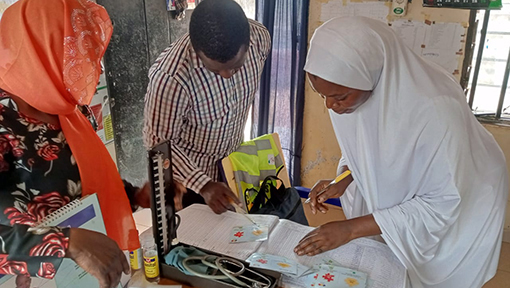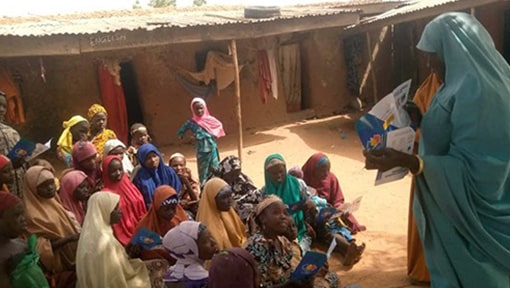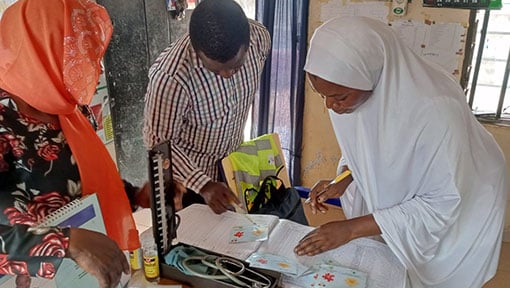Engaging Pharmacies to Accelerate Access to Contraceptive Services to Young People in Mombasa, Kenya

A pharmacy data audit session in Mombasa County with the Ministry of Health and the Kenya Pharmaceutical Association.
Pharmacies play a critical role in how sexual and reproductive health services are accessed, especially in low-resource settings. Various studies show that many adolescents and youth receive contraception services from pharmacies as they are the most accessible and affordable in the community. Mwanakarama Athman, Mombasa County’s Reproductive Health Coordinator, said:
When we talk about the need to increase access to contraceptives, we know the reality: without the private sector, we will not be able to meet the needs of young people. About 80% of health facilities here are privately owned, with the majority being pharmacies.”
Access to youth-friendly sexual and reproductive health services is critical for their health and well-being and the achievement of Sustainable Development Goals as laid out by the United Nations. Through a partnership with the Kenya Pharmaceutical Association (KPA) and the County of Mombasa, The Challenge Initiative (TCI) worked together to strengthen the capacity of pharmacists and pharmaceutical technologists to offer quality contraceptive services to urban youth between June 2019 to May 2021.
According to the Kenya National Family Planning Guidelines (6th edition), pharmacists and pharmaceutical technologists can counsel, dispense and provide condoms, pills and injectables as well as refer clients to nearby health facilities for long-acting reversible contraception (LARC) and permanent methods. This partnership is already delivering tangible benefits for adolescents and youth. The 50 pharmacies recruited in Mombasa County now serve over 20,000 youth as depicted in the graph below.

When the public health system find ways to work with the private sector, their ability to reach and address the health concerns of all individuals in a community improves. Mwanakarama shared how the results of this partnership has sparked interest from others in the private sector:
Other pharmacies saw the results of our engagement and requested that we collaborate with them too. We ended up working with an additional 29 pharmacies who were not on the pilot phase.”
Data from the private sector is critical to inform more equitable policies, streamline decision-making and address health gaps. The way data is visualized and used can make the difference between information that is interesting and information that saves lives. Dr. David Miller, Chairperson of the KPA Mombasa Chapter, explained:
Metrics to measure family planning uptake focused only on public or private health facilities. So, as the system is setup, we could not capture the efforts of the work we were doing with the pharmacies effectively.”
In October 2019, the County program implementation team, with TCI support, provided hands-on training to the pharmacies to improve their record-keeping by performing data quality checks. At the same time, KPA worked with pharmacies to review filing systems and institute more efficient data management approaches.
By June 2020, KPA supported the data entry and records management staff of all 50 pharmacies to conduct a data validation and cleaning exercise to cross-check and update the data reported by all 50 pharmacies. Mwanakarama congratulated KPA and the pharmacies for prioritizing clean-up of their data:
Local availability of previously non-existent data was made possible through advocacy with health management teams at the national level. The pharmacies will now be able to report within the government health system. A unique identifying code for pharmacies has been created to enable them to enter data on the health information management system.”
This is a huge achievement for the county and will help it plan better for the sexual and reproductive health needs of adolescents and youth.






